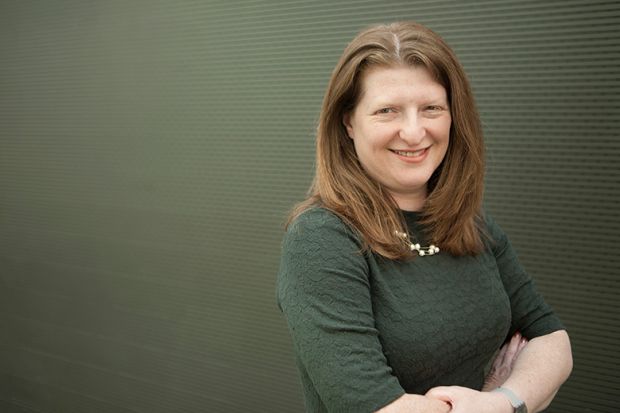I am not very disabled. I have a chronic illness whose major symptoms are kept under control by diet. But the associated mild joint problems restrict some of my mobility choices, such as where to look for jobs. Not many people realise, I suspect, that for someone with a disability, the question of “can I function in this city or in these buildings?” shapes their application choices to a considerable degree.
As a completely unrelated bonus, I am also going deaf (I have known I had the family deafness since my late twenties). Since this issue, too, is invisible, I often have to choose between pretending I am not disabled and making a fuss (“Yes, I do mind if you don’t use the microphone – and, by the way, one in four of the population has hearing loss, so why are you even asking?”).
But, having already done the coming out thing about sexuality in the 1980s, I’ve opted to be out and proud about disability as well. It may get me labelled as a pain, but it has encouraged students and others to come forward and ask for assistance. However, being “out” is not without its concerns. I have made many job applications in which the “do you have a disability?” question, instead of being on the separate monitoring form, is on the application form itself. And I’ve witnessed too much prejudice in shortlisting discussions to regard this with equanimity; I can see why some academics would prefer to keep their disability a secret if they can.
As institutions that compete for students and prestige, there is a real incentive for universities to support individual students not only in applying but also in succeeding and graduating. That has gradually led to more proactive and responsive policies. But we are far less good at remembering that staff may have disabilities, too. This can lead to some surreal situations. One of my favourite incidents was joining a disability task force and discovering that the meeting was on the third floor of the only university building without an elevator. I noted this and was informed that “no one with mobility issues is on the committee” – to which I responded gently: “They are now.” (The generally good accessibility at that university meant few people realised I am limited on stairs.)
Then there are the design issues. Everything we do is designed for students and student access, and to a great extent that’s how it should be. We academics are adults, I have always felt, and we have resources they don’t have. But then came the brand new classrooms with sound baffles that made me feel as if my ears were stuffed with cotton wool. Only when I was listening to a visiting speaker there did I realise (and later confirm through research) that the classroom was designed to channel the speaker’s voice to the students while muffling the sound they make among themselves, so they aren’t distracted by it.
And don’t get me started on modern classrooms in general: the more excitingly designed a classroom is, the worse a time I am going to have teaching in it. Spread students out and I have to stand and walk around the entire time. Imagine trying to get a wheelchair around clusters of desks (I have occasionally used a wheelchair, and expect to have to do so again). Imagine trying to see from a wheelchair what is on the high tables in one of our high-tech rooms, where everyone stands or uses tall stools.
The oddity in all this is that the rates of disability in academia are probably quite high – if only because we age in post. Several of my colleagues have arthritis. Many have hearing and eyesight issues, or mental health problems. Others are being treated for long-term illnesses. But our institutions (and that includes us as individuals) act as if we are all able-bodied, and only the students need support. I see this most in training materials. Very few meet the basic standards of disability support that we expect of teaching materials. We do not practise best practice, and it is high time that we did.
Farah Mendlesohn is associate dean: law, policing and forensics at Staffordshire University. She is associated with the network www.ChronicallyAcademic.org.
Times Higher Education will be publishing more stories of disability on campus throughout the week. Follow #DisabilityOnCampus on Twitter for updates.
